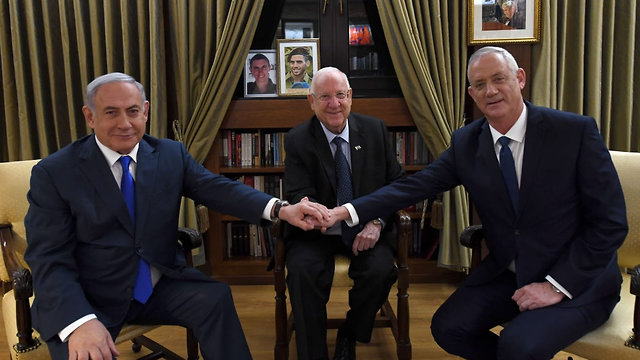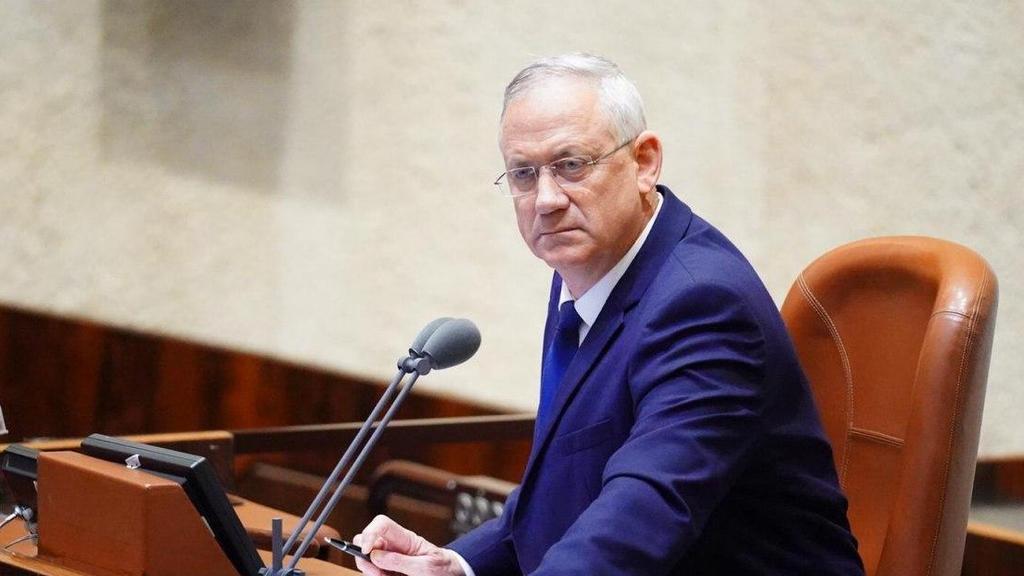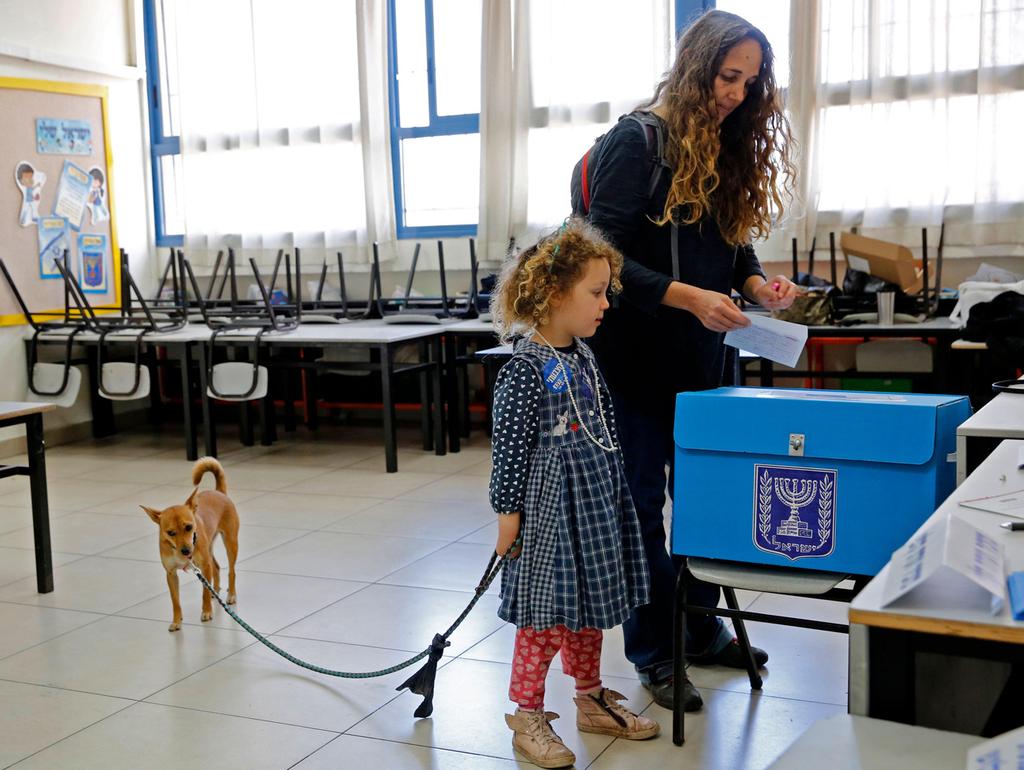Getting your Trinity Audio player ready...
Sources within the Blue & White party lashed out Thursday at Likud leader Prime Minister Benjamin Netanyahu after the two sides failed to reach an agreement on a unity government.
Netanyahu, they said, would rather put the country through a fourth national election since April 2019 than compromise.
Blue & White and Likud representatives held late night talks Wednesday after President Reuven Rivlin agreed Monday night to give Blue & White leader Benny Gantz a 48-hour extension to his allotted time period to form a government.
3 View gallery


L-R: Benjamin Netanyahu, Reuven Rivlin and Benny Gantz meeting late last month for coalition talks
(Photo: GPO)
The late night talks did not lead to a breakthrough, but the two sides issued a joint statement early Thursday saying discussions would continue later in the day.
Rivlin has now returned the mandate for forming a government to the Knesset for a three-week period in which any member of parliament can try to muster the 61 lawmakers needed in order to be given the task of building a coalition.
With that scenario appearing unlikely, the Knesset would dissolve at the end of the three weeks and the country would be forced into its fourth consecutive election since April 2019.
The main sticking point appears to be Likud wish to control the appointment of judges, a particularly sensitive issue given Netanyahu's looming trial for corruption.
Gantz told associates he will not allow Likud to have more power in deciding judicial appointments as he considers it an attack on Israeli democracy.
The 42-day mandate for Gantz to form a government ended Monday night but Rivlin agreed to the 48-hour extension after the sides reported “significant progress” in coalition negotiations.
A deal would likely require major compromise by both men. During three bitter campaigns over the past year, Gantz vowed never to serve in a government under Netanyahu, who has been indicted on bribery, fraud, and breach of trust. The long-serving Netanyahu, meanwhile, would likely be forced to step aside and allow Gantz to serve as prime minister for part of the time in a rotating power-sharing deal.
3 View gallery


Benny Gantz in the Knesset speaker's chair after his shock election to the position last month
(Photo: The Knesset)
The March 2 election, just like those in September and April, ended with no clear winner. But with a slight majority of the 120 Knesset members endorsing him, Gantz was given the first shot at building a coalition.
Although his supporters were deeply divided, they were united in their animosity toward Netanyahu, and he began to move forward with legislation that would have disqualified the indicted Netanyahu from serving as prime minister in the future.
But with the coronavirus crisis worsening, and his own shaky three-faction alliance fraying, Gantz made a shock about-face late last month and accepted an offer from Netanyahu to pursue a joint government to deal with the pandemic.
The offer was revealed when Gantz suddenly announced he was standing as Knesset speaker at the last minute, despite his party having picked a different candidate for the powerful position.
The move was met with fury from Gantz’s political partners and caused his Blue & White alliance to crumble, leaving him with a party of only about half its original size.
Gantz was elected speaker with the support of Netanyahu's right-wing, religious bloc. He maintains that the coronavirus crisis demands unity and not division, a claim dismissed by Netanyahu critics who say the prime minister only wants to hold onto power.


